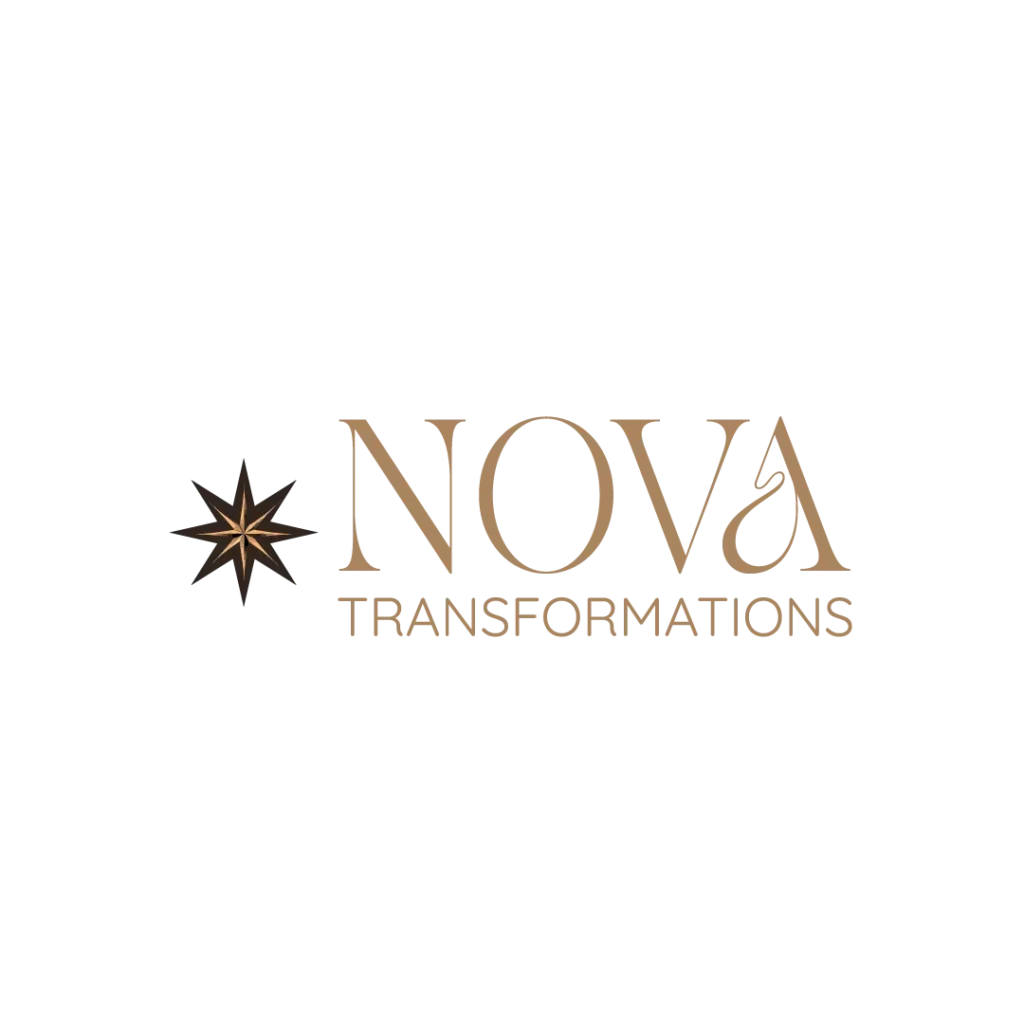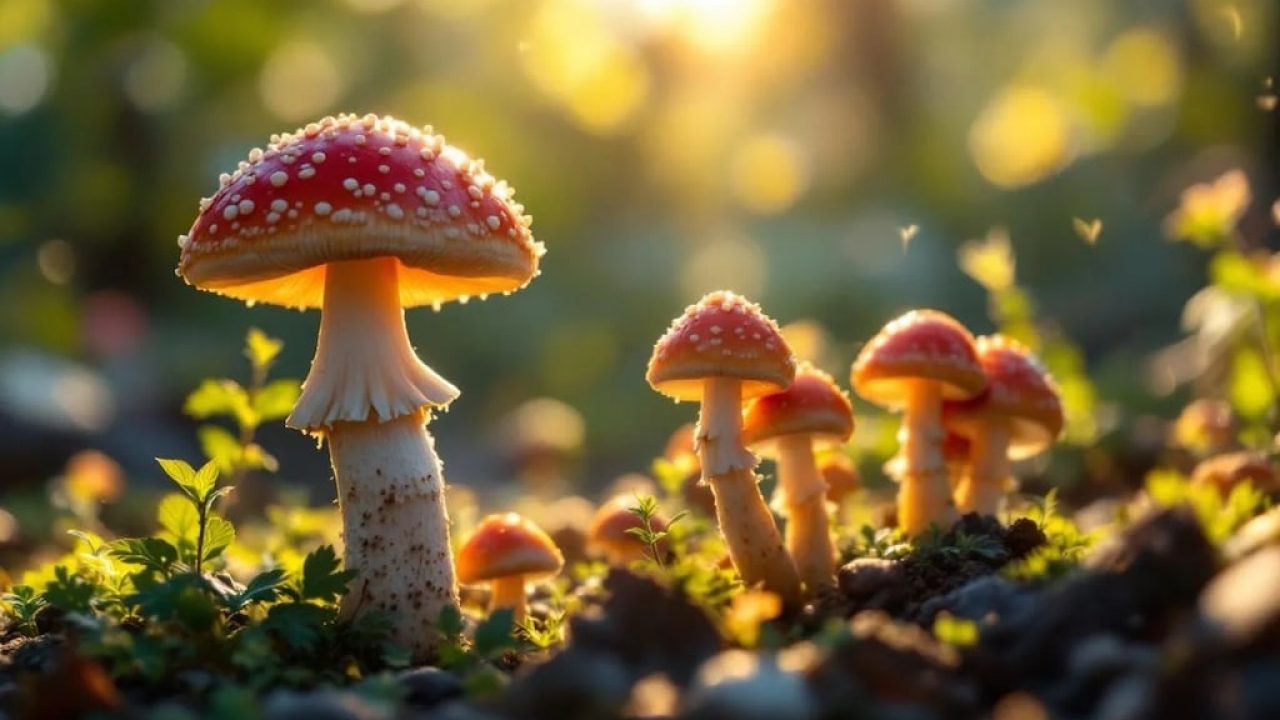As interest in psychedelic therapies continues to grow, many people are asking important questions about the safety and addiction potential of substances like psilocybin mushrooms. With recent FDA breakthrough therapy designations and promising clinical research, psilocybin is gaining attention not just as a recreational substance but as a potential medical treatment for conditions like depression and substance use disorders.
At Nova Transformations, we believe in providing accurate, evidence-based information about all substances that may impact mental health and addiction recovery. Understanding the true risks and benefits of psilocybin is crucial for making informed decisions about treatment and recovery.
What Are Psilocybin Mushrooms?
Psilocybin mushrooms, commonly known as “magic mushrooms” or “shrooms,” contain the naturally occurring psychedelic compound psilocybin. Found in over 100 species of mushrooms worldwide, psilocybin has been used for centuries in spiritual and ceremonial contexts by indigenous populations, particularly in Central and North America.
When consumed, the body converts psilocybin into psilocin, which activates serotonin receptors in the brain, particularly the 5-HT2A receptor. This interaction produces the characteristic effects associated with psilocybin, including altered perception, changes in mood and cognition, and potentially profound psychological experiences.
The Science Behind Psilocybin’s Addiction Potential
The question of whether psilocybin mushrooms are addictive requires a nuanced understanding of addiction science. Research consistently shows that psilocybin has significantly different addiction characteristics compared to substances like opioids, alcohol, or stimulants.
Low Addiction Risk Profile
Multiple studies indicate that psilocybin has a low potential for abuse and dependence. Research shows low abuse and dependence potential in both animal and human studies. Psilocybin:
- Lacks reinforcing properties typical of addictive substances
- Does not produce physical dependence or withdrawal symptoms
- Shows limited self-administration in laboratory settings
- Develops rapid tolerance that discourages frequent use
Understanding Tolerance vs. Dependence
One of the most significant factors that limits psilocybin’s addictive potential is the rapid development of tolerance. Users typically require increasingly higher doses to achieve the same effects, and this tolerance develops so quickly that using psilocybin daily becomes impractical and ineffective. Additionally, there is cross-tolerance between psilocybin and other classic psychedelics like LSD and mescaline.
Unlike substances that create physical dependence, stopping psilocybin use doesn’t produce the dangerous withdrawal symptoms seen with alcohol, opioids, or benzodiazepines. Some users may experience mild, temporary effects like fatigue or mood changes for a day or two, but these are not comparable to true withdrawal syndromes.
Psychological Dependence Considerations
While psilocybin doesn’t create physical addiction, some individuals may develop psychological dependence. This can occur when someone feels they need psilocybin to function normally or to maintain a certain emotional state. However, this type of dependence is less common and generally less severe than with traditional substances of abuse.
For individuals recovering from substance use disorders, understanding that any mind-altering substance—including psilocybin—could potentially trigger unhealthy patterns is important.
Psilocybin’s Emerging Role in Addiction Treatment
Paradoxically, while psilocybin itself has low addiction potential, research suggests it may actually be helpful in treating addiction to other substances. This emerging field of psychedelic-assisted therapy represents a significant shift in how we understand both addiction and treatment.
Current Research Findings
Recent studies have shown promising results for psilocybin-assisted therapy in treating:
- Alcohol use disorder, with participants showing reduced heavy drinking days over extended periods in controlled trials
- Tobacco addiction, with impressive smoking cessation rates where majority quit for months in Johns Hopkins studies
- Other substance use disorders, with observational studies showing reduced use of cocaine, marijuana, and opioids
At Nova Transformations, we stay current with evolving research in addiction treatment, including the potential therapeutic applications of carefully administered psychedelic therapies in clinical settings. Our dual diagnosis approach ensures we can address both substance use and co-occurring mental health conditions comprehensively.
How Psilocybin May Help Addiction Recovery
The mechanisms by which psilocybin might support addiction recovery are still being studied, but researchers believe several factors contribute:
- Neuroplasticity enhancement that may help break established patterns of addictive behavior
- Increased self-awareness and introspection that can provide insights into addiction patterns
- Mystical or spiritual experiences that may reduce the desire to use other substances
- Reduced activity in the brain’s default mode network, which is associated with rumination and craving patterns
Risks and Safety Considerations
While psilocybin has a relatively favorable safety profile compared to many substances, it’s not without risks:
Immediate Risks
- Unpredictable psychological effects, including anxiety, panic, or distressing experiences
- Impaired judgment and coordination during effects, leading to potential accidents
- Exacerbation of underlying mental health conditions, particularly in individuals predisposed to psychotic disorders
- Dangerous interactions with certain medications, especially SSRIs
- Risk of triggering existing dual diagnosis conditions where substance use and mental health disorders co-occur
Long-term Considerations
- Hallucinogen Persisting Perception Disorder (HPPD), a rare condition causing persistent visual disturbances
- Psychological trauma from difficult experiences, particularly in uncontrolled settings
- Mushroom misidentification, leading to accidental poisoning from toxic species
The Current Legal and Regulatory Landscape
Despite promising research, psilocybin remains a Schedule I controlled substance at the federal level, meaning it’s illegal to possess or use outside of approved research settings. However, the regulatory landscape is evolving:
- FDA Breakthrough Therapy Designations have been granted for psilocybin treatments for depression
- Clinical trials are expanding nationwide, investigating psilocybin for various mental health conditions
- State and local decriminalization efforts are underway in various jurisdictions
- Medical research continues to expand under proper regulatory oversight
Nova Transformations’ Perspective on Emerging Therapies
At Nova Transformations, we recognize that the field of addiction treatment continues to evolve. While we don’t currently offer psilocybin-assisted therapy, we remain committed to staying informed about emerging evidence-based treatments that could benefit our clients.
Our comprehensive dual diagnosis approach already incorporates innovative therapies alongside traditional treatments, always prioritizing safety, evidence-based practices, and individualized care. We understand that many individuals seeking treatment have complex needs involving both substance use and mental health conditions that require specialized attention. As research progresses and regulatory pathways develop, we evaluate how new therapeutic modalities might fit into our holistic treatment philosophy.
Making Informed Decisions About Substance Use
For individuals in recovery or considering their relationship with any psychoactive substance, several key principles apply:
For Those in Recovery
If you’re currently in recovery from substance use disorders, it’s essential to discuss any interest in psilocybin—whether recreational or therapeutic—with your treatment team. Even substances with low addiction potential can pose risks for individuals with a history of substance abuse.
Understanding Personal Risk Factors
Certain individuals may be at higher risk for problematic psilocybin use:
- Those with a personal or family history of psychotic disorders
- Individuals with unstable mental health conditions
- People currently taking psychiatric medications
- Those using psilocybin to cope with stress or emotional difficulties
The Bottom Line: Is Psilocybin Addictive?
Based on current scientific evidence, psilocybin mushrooms have a significantly lower addiction potential compared to substances like alcohol, opioids, cocaine, or methamphetamine. The rapid development of tolerance, absence of physical withdrawal symptoms, and limited reinforcing properties all contribute to this lower risk profile.
However, “low addiction potential” doesn’t mean “no risk.” Psychological dependence can develop, and the substance can pose particular risks for individuals with certain mental health conditions or those in recovery from other substance use disorders.
Perhaps most importantly, the context in which psilocybin is used matters enormously. Supervised, therapeutic use in clinical settings—as being studied in current FDA-approved trials—presents very different risks than recreational use in uncontrolled environments.
Getting Help When You Need It
If you or someone you care about is struggling with substance use—whether it involves psilocybin, alcohol, opioids, or other substances—professional support is available. Addiction is a complex medical condition that benefits from comprehensive, evidence-based treatment.
At Nova Transformations, our dual diagnosis approach addresses both substance use disorders and co-occurring mental health conditions, recognizing that lasting recovery requires treating the whole person, not just the addiction. Our intensive outpatient and partial hospitalization programs provide the flexibility and support needed for comprehensive healing.
Moving Forward with Hope and Science
The evolving research on psilocybin represents both the complexity of addiction science and the promise of innovative treatments. As we continue to learn more about how different substances affect the brain and behavior, our understanding of addiction and recovery continues to expand.
What remains constant is the importance of approaching these topics with accurate information, professional guidance, and a commitment to safety and healing. Whether someone is curious about emerging therapies or struggling with substance use, informed decisions and professional support provide the best foundation for health and recovery.
Light Your Journey At Nova
Choosing to seek help is a courageous step, and at Nova Transformations, we are here to walk with you on the path to lasting recovery. Our dual diagnosis treatment program in North Carolina is designed to empower individuals, helping them overcome both substance use disorders and mental health challenges.
If you or a loved one is seeking specialized addiction treatment, call us today to verify insurance, learn about our additional treatment options, and begin your journey to healing.
Your journey starts here. Let us be part of it.
(704) 961-9322
The information in this article is for educational purposes only and should not be considered medical advice. Always consult with qualified healthcare professionals for personalized guidance regarding substance use, mental health, and treatment options.
References
- Johnson, M. W., & Yaden, D. B. (2018). The abuse potential of medical psilocybin according to the 8 factors of the Controlled Substances Act. Neuropharmacology, 142, 143-166. https://www.sciencedirect.com/science/article/pii/S0028390818302296
- National Center for Complementary and Integrative Health. (2023). Psilocybin for Mental Health and Addiction: What You Need To Know. National Institutes of Health. https://www.nccih.nih.gov/health/psilocybin-for-mental-health-and-addiction-what-you-need-to-know
- U.S. Food and Drug Administration. (2024). FDA Issues First Draft Guidance on Clinical Trials with Psychedelic Drugs. https://www.fda.gov/news-events/press-announcements/fda-issues-first-draft-guidance-clinical-trials-psychedelic-drugs








